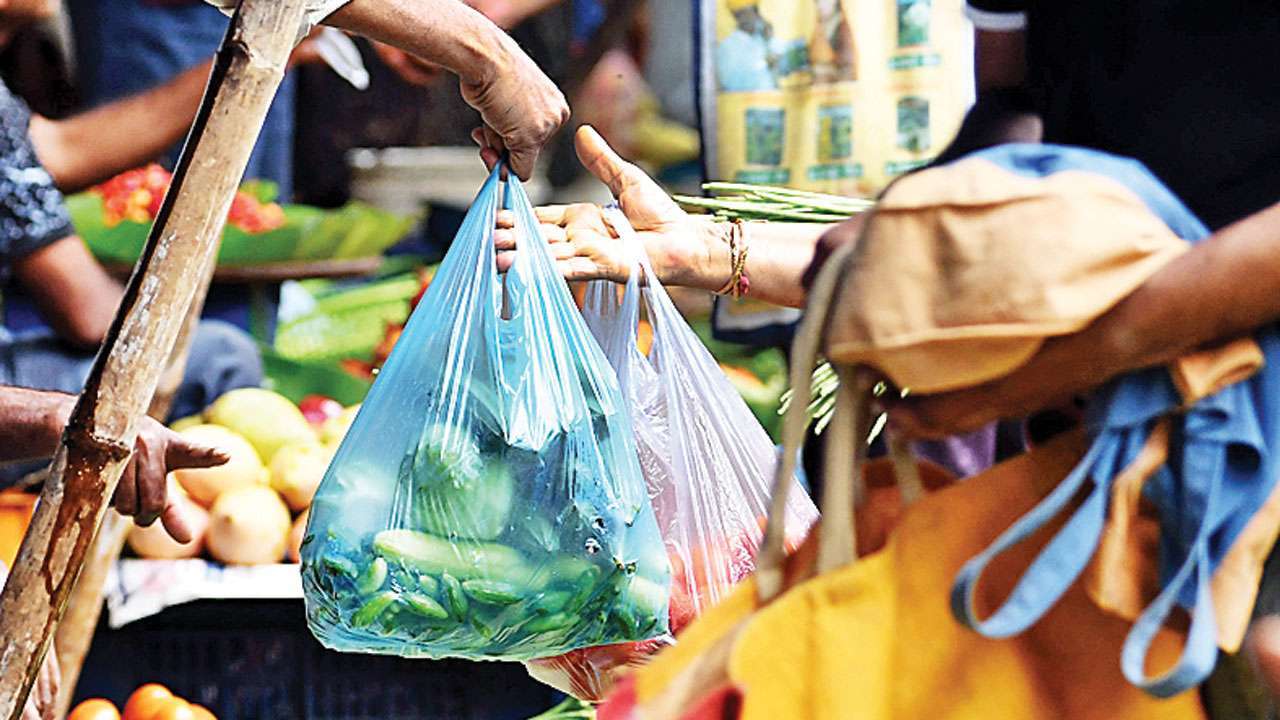From July 1, the Centre will prohibit the use of “single-use plastic.” The Ministry of Environment, Forestry, and Climate Change announced the prohibition in a gazette notice last year, and has now established a list of things that will be prohibited beginning next month.

“With effect from July 1, 2022, the manufacturing, import, stocking, distribution, sale, and use of the following single-use plastic commodities, including polystyrene and expanded polystyrene, shall be forbidden,” states the Ministry announcement.
It refers to plastic goods that are used once and then discarded, as the name implies. Single-use plastic accounts for a significant portion of all plastic produced and consumed, including packaging, bottles (shampoo, detergents, cosmetics), polythene bags, face masks, coffee cups, cling film, garbage bags, food packaging, and so on.
According to a research published in 2021 by the Minderoo Foundation, single-use plastics account for a third of all plastic produced globally, with 98 percent being made from fossil fuels. The bulk of plastic thrown is single-use plastic, which amounts for 130 million metric tonnes globally in 2019 — “all of which is burnt, buried in landfills, or tossed directly into the environment,” according to the research.
By 2050, it is estimated that single-use plastic would account for 5-10% of greenhouse gas emissions, based on current manufacturing trends.
According to the survey, India is ranked 94th out of 100 nations in terms of single-use plastic garbage creation (the top three being Singapore, Australia, and Oman). India’s net creation of single-use plastic garbage is 5.6 million metric tonnes per year, with local production of 11.8 million metric tonnes and imports of 2.9 million metric tonnes.
Earbuds, balloon sticks, candy and ice-cream sticks; cutlery items such as plates, cups, glasses, forks, spoons, knives, trays; sweet boxes; invitation cards; cigarette packs; PVC banners measuring under 100 microns; and polystyrene for decoration are among the items banned by the Central Pollution Control Board (CPCB).
In September 2021, the Ministry outlawed polythene bags with a thickness of less than 75 microns, up from the previous restriction of 50 microns. The restriction will be extended to polythene bags with a diameter of less than 120 microns starting in December. The restriction is being phased in to give producers time to transition to thicker polythene bags that are simpler to recycle, according to Ministry officials. Manufacturers may use the same machine for 50 and 75 micron bags, but for 120 micron bags, the machinery will need to be modified.
Plastic sachets used for storing, packaging, or selling gutkha, tobacco, or pan masala are also prohibited under the Plastic Waste Management Rules of 2016.
The decision of the initial batch of single-use plastic goods for the ban was based on “difficulty of collecting, and hence recycling,” according to ministry officials.
The CPCB at the Centre will keep an eye on the prohibition, as will the State Pollution Control Boards (SPCBs), which will report to the Centre on a regular basis. At the national, state, and municipal levels, directives have been issued — for example, to all petrochemical businesses — not to give raw materials to industries that produce the forbidden commodities.
SPCBs and Pollution Control Committees have also been given instructions to alter or cancel authorization to operate provided under the Air/Water Act to enterprises that produce single-use plastic goods. Local governments have been instructed to give new commercial licences with the proviso that SUP products will not be sold on their premises, and current commercial licences will be revoked if these things are discovered to be sold.
The CPCB gave one-time certifications to 200 compostable plastic makers last week, while the BIS approved biodegradable plastic standards.
Those who break the prohibition face penalties under the Environment Protection Act 1986, which include up to 5 years in jail, a fine of up to Rs 1 lakh, or both.
The SPCB may also demand that violators pay Environmental Damage Compensation. There are also local rules on plastic garbage that have their own criminal codes.
